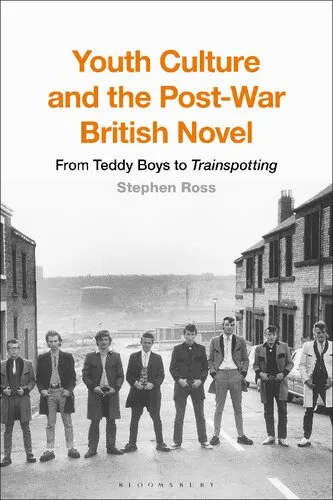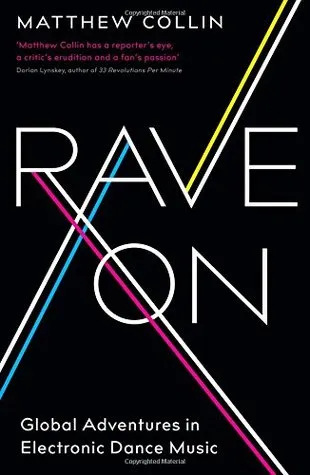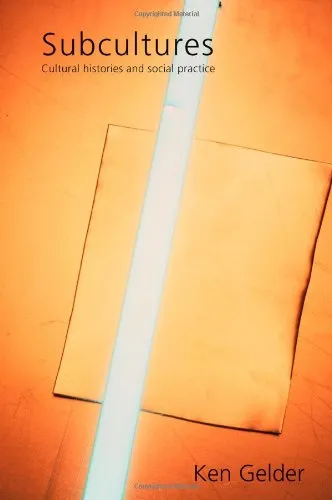Youth Culture and the Post-War British Novel: From Teddy Boys to Trainspotting
4.0
Reviews from our users

You Can Ask your questions from this book's AI after Login
Each download or ask from book AI costs 2 points. To earn more free points, please visit the Points Guide Page and complete some valuable actions.Related Refrences:
Introduction to 'Youth Culture and the Post-War British Novel: From Teddy Boys to Trainspotting'
"Youth Culture and the Post-War British Novel: From Teddy Boys to Trainspotting" is an exploration of the dynamic and often unruly spirit of youth as depicted in British literature from the 1950s to the mid-1990s. The book delves into how British novelists have captured the essence of youth culture amid sweeping societal changes, illustrating how literature not only reflects but also influences the attitudes, behaviors, and aspirations of young people.
Detailed Summary
Post-war Britain experienced a cultural revolution that shook its social fabric, transforming a deeply conservative society into one marked by vibrant new forms of self-expression. The emergence of distinct youth subcultures such as the Teddy Boys, Mods, Punks, and Ravers signified more than just fashion and music; they represented groundbreaking shifts in identity and resistance. This book meticulously chronicles how each decade brought its own literary reflections of these youth movements.
Beginning with the Teddy Boys of the 1950s, who challenged the drab monotony of post-war Britain with their flamboyant style and rebellious attitude, the book moves through successive decades, each teeming with its own distinctive youth movements. It examines the Mods and Rockers of the 1960s, touching upon novels like Anthony Burgess's "A Clockwork Orange", which captured the violent exuberance of these subcultures.
As the book progresses into the 1970s and 80s, it examines punk's nihilistic rage in literature, highlighting how novelists like Martin Amis depicted the anger and disillusionment of youth with biting satire. Finally, it addresses the drug-fueled escapism of the 1990s, epitomized by Irvine Welsh's "Trainspotting", where literature mirrors the raw, gritty reality of youth at the dawn of a new millennium.
Key Takeaways
- The book offers a rich historical overview of post-war British youth culture and its vivid portrayal in literature.
- It illustrates how the concerns and styles of each generation evolved, influenced by societal shifts such as economic changes, political strife, and the rise of consumerism.
- Readers gain insight into how British novelists have uniquely captured the voices of youth, contributing to a greater understanding of cultural history.
- The book enhances appreciation for how literature serves as both a mirror and an architect of cultural change.
Famous Quotes from the Book
"In every subculture, literature serves as both a sanctuary and a stage, allowing youth to explore their identities free from the constraints of the dominant paradigm."
"The rebellions of youth are not mere acts of delinquency but are profound gestures seeking to redefine what it means to belong, to aspire, and to exist within a rapidly changing world."
Why This Book Matters
The significance of "Youth Culture and the Post-War British Novel" lies in its comprehensive analysis of how literature has documented the evolution of British youth culture. For scholars and enthusiasts of British literature and social history, this book provides essential insights into the symbiotic relationship between societal evolution and literary expression. It highlights the power of the written word in narrating and shaping the experiences of generations, making it an indispensable resource for understanding the complex tapestry of 20th-century Britain.
The book not only enriches the reader's knowledge but also prompts reflections on contemporary youth culture, drawing parallels between past and present narratives. Its examination of literature's role in cultural discourse offers enduring lessons on the capacity of art and literature to influence and document societal change.
Free Direct Download
You Can Download this book after Login
Accessing books through legal platforms and public libraries not only supports the rights of authors and publishers but also contributes to the sustainability of reading culture. Before downloading, please take a moment to consider these options.
Find this book on other platforms:
WorldCat helps you find books in libraries worldwide.
See ratings, reviews, and discussions on Goodreads.
Find and buy rare or used books on AbeBooks.
1312
بازدید4.0
امتیاز50
نظر98%
رضایتReviews:
4.0
Based on 0 users review
"کیفیت چاپ عالی بود، خیلی راضیام"
Questions & Answers
Ask questions about this book or help others by answering
No questions yet. Be the first to ask!





